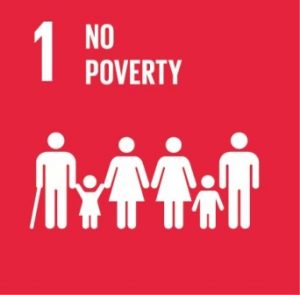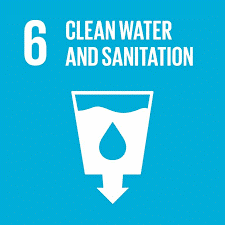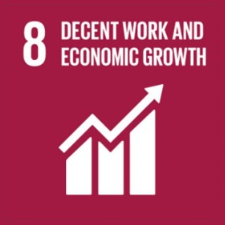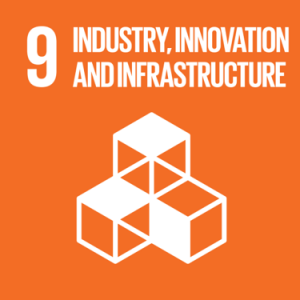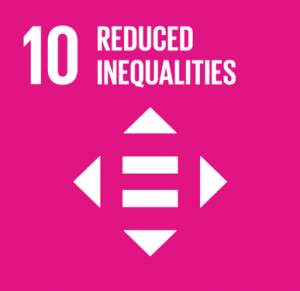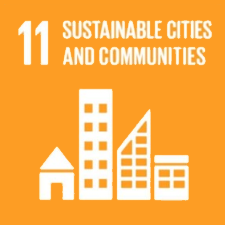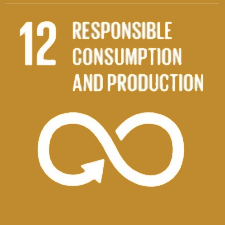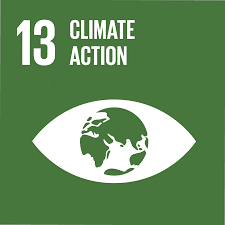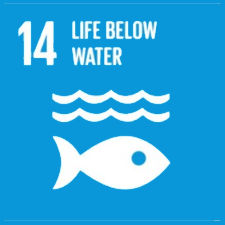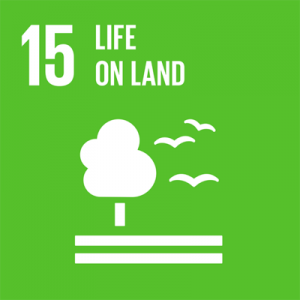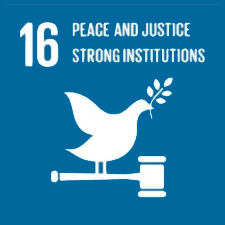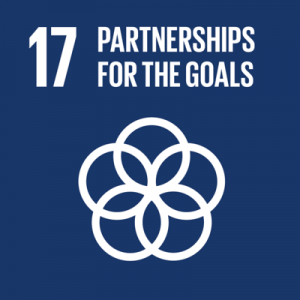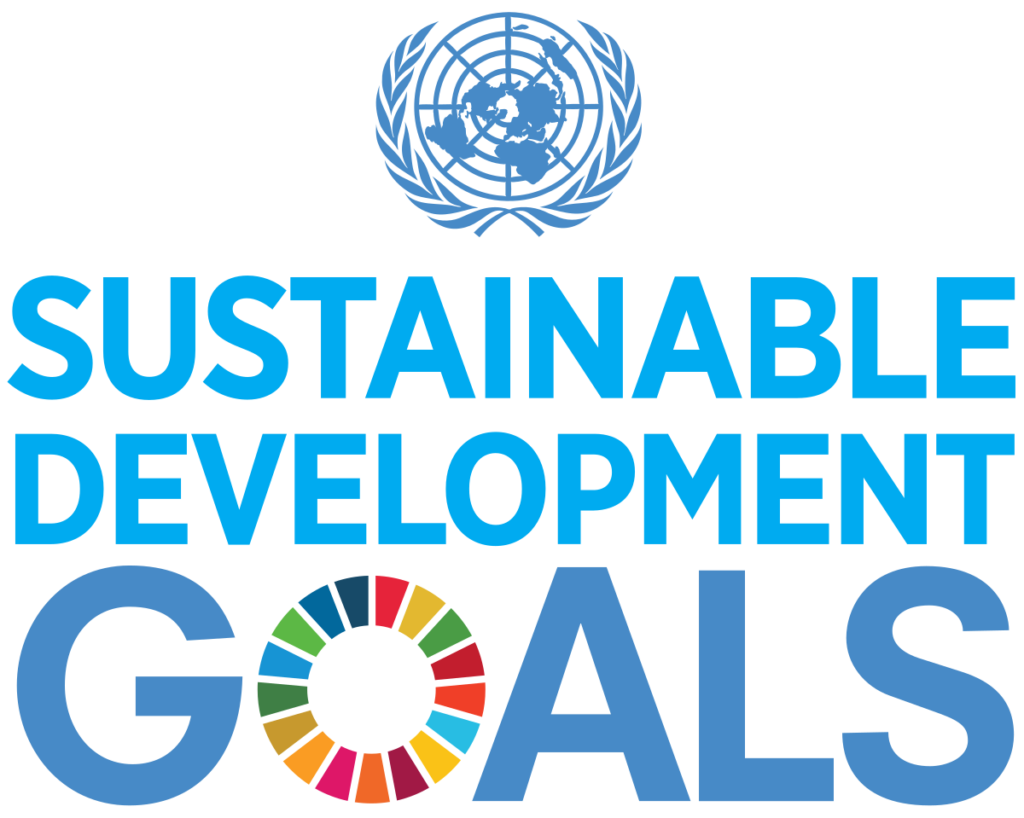SUSTAINABLE DEVELOPMENT GOALS
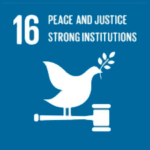
SDG 16: PEACE, JUSTICE, AND STRONG INSTITUTIONS
“SDG 16 and 17 explore some of the underlying factors that are needed in order to ensure delivery of the other SDGs. Peace and Justice go hand in hand – and indeed are vital for equity between people and countries. Supporting this we need our institutions to be strong enough to maintain a focus on delivering the SDGs. This can range from individual justice – eradicating modern slavery and people trafficking – to ensuring that our countries have the evidence base needed to react appropriately to crises.”
(THE Impact Rankings)
University governance measures
IPB university has elective representation (the Board of Trustees), namely Majelis Wali Amanat (MWA), the highest body at the University. According to the MWA Decree of IPB University no. 09/WMA-IPB/P/2021 concerning organizational structure and governance, MWA has 17 members consisting of representatives of various stakeholders, including The Ministry of Education, the Rector, the Academic Senate representing faculty members (8 people), the chief of staff organization, the president of the student organization, the chief of the alumni association, and representation of society (4 people).
IPB University has 107 student organizations as a forum for students in democratic learning related to the academic environment, student affairs, etc. Each faculty, department, and the university has a student union consisting of the Student Consultative Assembly (MPM), the Student Representative Council (DPM), the Student Executive Board (BEM), the Undergraduate Students’ Professional Association, the Vocational Professional Association, Student Activity Units (UKM), and Postgraduate Student Community (Forum Wacana). These students’ unions are acknowledged by the Rector’s Regulation No.19/IT3/KM/2018. All the chairmen of these student union are legalized through Rector Decree No. 37 of 2024 concerning the head of intra-campus student organization and are inaugurated collectively. All the chairmen are elected by their member groups based on Rector’s Regulation No.19/IT3/KM/2018 article 11.
The Student Executive Board (BEM) is the university-level student organization which is allied with Indonesian Student Executive Board (BEM SI), a national wide platform for student union.
IPB University formulated policies and procedures to identify stakeholders and aims to build strong engagement with them, as written in IPB Statute Article 38-39, which specify collaboration in academics and non-academic affairs (pages 19-20, Article 38-39). In more detail, this collaboration is regulated through MWA Regulation No. 11/IT3.MWA/PR/2018 concerning Non-Academic Collaboration (Kerjasama Non-Akademik). Article 4 specifies the scope of non-academic collaboration that can be implemented by IPB University. Article 7 point 2 specifies the criteria of partner candidates that have to be assessed. Article 8 specifies the procedure for implementing collaboration.
Local Stakeholders Participation
IPB University ensures that local stakeholders in the university, including residents, local government, and civil society representatives, have a meaningful mechanism for university decision-making. The engagement of stakeholders is manifested in the structure of the Board of the Trustees IPB University, such as Lecturer Representatives, Community Representatives, and Student Representatives.
Local stakeholders, including local government and civil society, are important elements of the Board of Trustees of IPB University, who participate in the university’s decision-making. There are four representatives of society who take part in the Board of Trustees of IPB University, including:
- Mochamad Ridwan Kamil (Governor of West Java Province)
- Suryopratomo (element of society)
- Sunarso (element of society)
- Agus Joko Pramono (element of society)
IPB has a management unit for Community Services under the Institute of Research and Community Empowerment of IPB (LPPM).
IPB also actively engages with the local government in Bogor. For example, in 2021, IPB University and the Local Government of Bogor launched Sekolah Pemerintahan Desa to implement good governance.

IPB has a policy on organized crime as stated in Senate Academic Regulations No. 33/SA-IPB/P/2019, article 1 point m, page 3, and article 11, page 9-10 “Pencegahan Kejahatan Luar Biasa”. To build integrity, one of the university values, IPB University spreads the spirit of anti-corruption among the academic community. One of the programs is Anti-Corruption Education for Students, implemented in 2021.
IPB has the policy to support academic freedom through Academic Senate Regulation No. 28/SA-IPB/P/2018 concerning Norms, Academic Freedom, and Scientific Otonomy. Article 4 point 2 specifies the scope of academic freedom, including teaching, research, and community empowerment. This regulation is valid for all faculty members, regardless of their ages, as well as staff and students. Article 4 point 3 specifies various areas or forums in which academic freedom is ensured and respected.
IPB University committed to publishing its financial report annually. The annual financial report is publicly opened and audited by Independent Auditor, namely PWC. The opinion of the public accountant on the IPB Financial Report 2021 can be seen on Page 4. It is written that the consolidated financial performance and cash flow in 2021 are under the Indonesian Financial Accounting Standards
7 Corporate Cultural Values of IPB:
- Academic Excellence: Developing academic cultures of being honest, objective, compliant, scientific, humane, patriotic, innovative, visionary, and independent.
- Spiritualism: Developing academic cultures of being honest, objective, compliant, scientific, humane, patriotic, innovative, visionary, and independent.
- Persistence: Maintaining the spirit of being enthusiastic, working smart, not giving up easily, being sustainable, focusing on process and goal, and varying strategies.
- Collaboration: Creating synergy, collaboration, networking through mutual respect, the feeling of needing each other, and the spirit of reminding each other for the better.
- Empathy/Care: Understanding others fairly, and being sensitive to surrounding for the advancement of all.
- Responsibility: Adapting oneself in performing duties, not being selfish, as well as being responsive and acting appropriately in providing excellent services to achieve the best performance.
- Commitment: Valuing highly the work completed responsibly, consistently, friendly, politely in compliance with the existing norms and regulations.
Values and ethics adopted by IPB:
- To tightly hold and highly value the principles of honesty, objectivity, compliance, and freedom of thinking to arrive at scientific truth;
- To respect universal values of humanity, maintain harmony, and sustain life in this universe;
- To provide support for national need, communal need, agricultural development, farmers, cattle breeders, fishermen in setting priorities for development programs of academic activities and dissemination of the results from the three pillars of higher education, and
- To consistently orient itself to more advanced and more just future
IPB University provide office and committee for ethical compliance within our institution:
- IPB Academic Senate Commission D, visit here
- Student Discipline Committee, visit here
IPB University provide training for ethical values:
- 7 Habits for First Year Student, visit here
- State Defense and National Insight Training, visit here
- Personalized Learning Training for Lecturer, visit here
General Annual Meetings Minutes of Open Plenary Session MWA IPB University:
- Open Plenary Session Record, can be seen here
- News, read here
Working with government
IPB University actively provides advice and inputs for policy-making made by the local, regional, and national governments in agriculture, marine, and biosciences. The followings are several pieces of expert advice delivered to the local, regional and national governments in 2021.
Specific expert advice to the national government:
- PKSPL IPB University Gives Feedback Regarding the Revision of the Legislation Bill of Fisheries
- The Board of Professors of IPB University Gives Recommendations Regarding Fertilizer Subsidy Policy Transformation
- Assisting the Government to Overcome Stunting, IPB University, and Pergizi Pangan Indonesia Create an Online Nutrition Status Check Application
Specific expert advice to regional government:
Specific expert advice to local government
IPB University maintains activities for providing general education, upskilling, and capacity-building for policymakers at various levels in agriculture, marine, and biosciences:
- Training of Climate Action Plan by the Center for Climate Risk and Opportunity Management in Southeast Asia and Pacific (Pages 3-4)
- In-house training for the National Nuclear Power Agency
- Training of coastal economic valuation to support policy making in coastal ecosystem management
- Village Government School to enhance the capacity of policymakers on the village level
- Training for Port Management
IPB University undertakes policy-focused research in collaboration with government departments. Some of these activities include collaboration with the local government and national government, such as:
- The study of the Key Performance Indicator (KPI) for the National Initiative for Sustainable and Climate Smart Oil Palm Smallholders conducted by CCROM IPB University in collaboration with the Indonesia Oil Palm Research Institute, the Ministry of Agriculture.
- The study of the sustainable utilization of the Marine Conservation Area of Sawu Sea by the Community in collaboration with The Ministry of National Development Planning under the consortium program of the Coral Reef Rehabilitation and Management Program – Coral Triangle Initiative (COREMAP-CTI).
- The study on Seed Development Policy, in collaboration with the Ministry of Agriculture
IPB Strategic Talks is a neutral platform and safe space for political stakeholders to discuss challenges. Various topics on policies related to agriculture, marine, and biosciences have been discussed among various stakeholders, including academicians, government, and political stakeholders. IPB Strategic Talks is organized regularly by the Directorate of Scientific Publications and Strategic Information.
SDG 16 IN NUMBER
7,985
Number of graduates in most recent year
273
Number of graduates from Law
3.42
Percentage of graduates from Law
RELATED NEWS
It seems we can't find what you're looking for.

